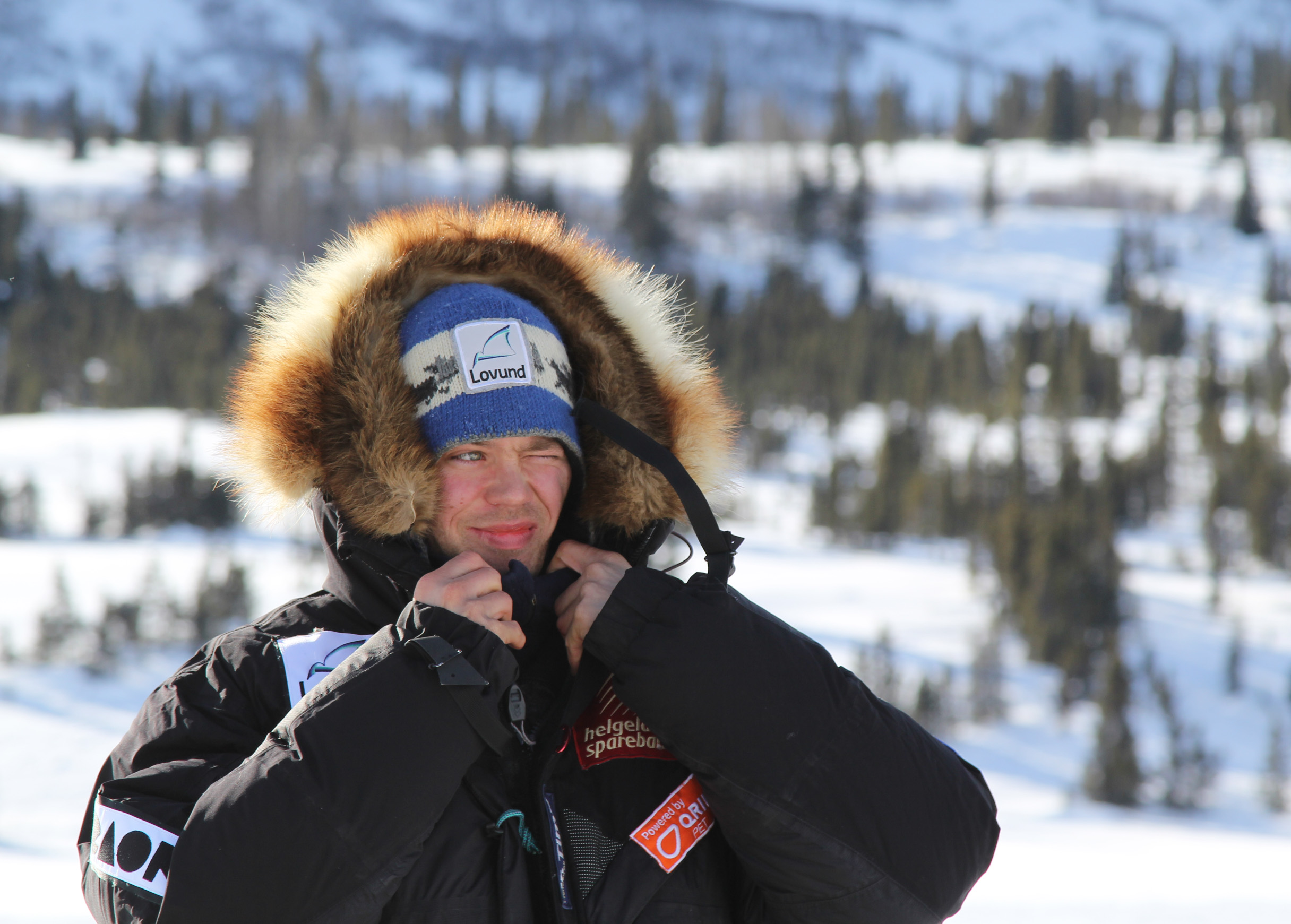
It’s one of the snowiest years in recent memory along a notoriously bare stretch of the Iditarod trail. In recent years, low-snow and a bald, icy trail conditions have made for a perilous run down the Dalzell Gorge through Rohn and across the Farwell Burn on the way to the village of Nikolai. But this year, checker Damian Dennis says that hasn’t been a problem.
“We just got dumped on within the last week. Got about six, seven inches of fresh snow,” Dennis said.
The conditions made for a less eventful run for many of the first mushers into Nikolai Tuesday morning. Mitch Seavey said it was the most snow he’d ever seen in the area during an Iditarod. Wade Marrs had to stand on the seat of his sled to keep his boots dry going through some overflow, but was otherwise unperturbed. Ryan Redington was the first musher into Nikolai, and says the hardest part for his team was punching through a trail that was just barely there.
“A little soft, breaking trail, windblown,” Redington said.
After the Rohn checkpoint, the trail narrows through the Buffalo Tunnels, so called because a local bison herd has been known to travel through the area. Then the land opens up along the Farewell Burn, speckled with spindly black spruce before eventually meeting the top of the Kuskokwim River.
Joar Ulsom says the roughly 70-mile stretch into Nikolai had some unpleasant soft patches and overflow that dampened dog booties, but overall he’s grateful for the snow cover.
“I mean the whole gorge, the burn, I’ve never ever seen snow in the burns before, but this year we had snow,” Ulsom said. “So that was pretty nice!”
Ulsom had all 16 of his dogs still on the line when he pulled in, looking energized and alert. All the other mushers who arrived early into Nikolai had big teams, as well. That power will be important for the slog ahead.
With deeper, windswept snow, dog teams have to work more than they would on a hard-packed, faster trail. Weather over the area, and up on toward checkpoints like McGrath, Takotna, and Ophir is expected to stay precipitous, potentially making for slower, more draining runs in the stretch ahead.
Zachariah Hughes reports on city & state politics, arts & culture, drugs, and military affairs in Anchorage and South Central Alaska.
@ZachHughesAK About Zachariah




